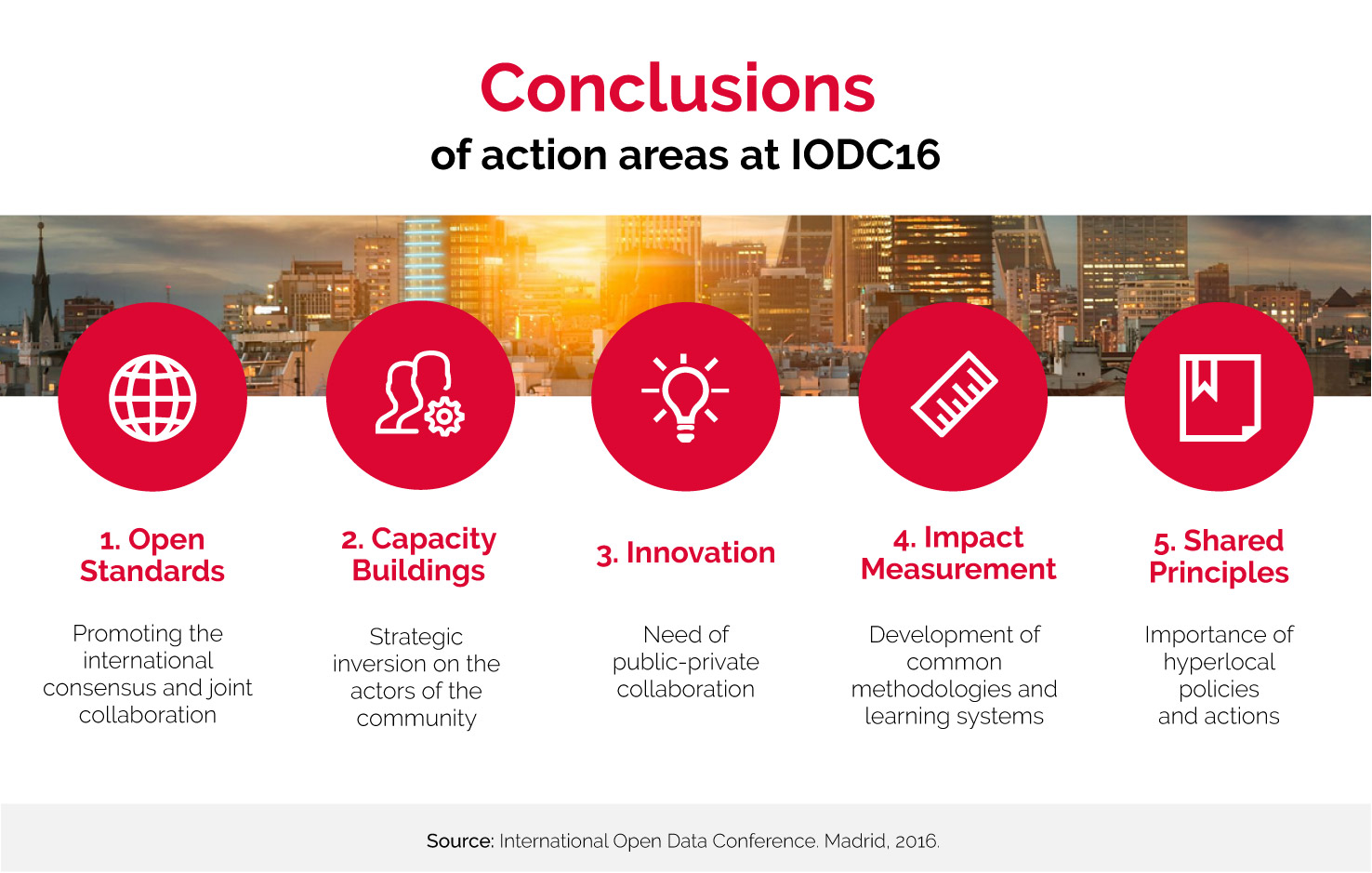Discussion on the global open data roadmap at IODC16 - Part 2
Fecha del post: 02-12-2016
Fuente: action areas, IODC16, Open Data Charter, open data

There are five action areas linked to the Open Data Charter: open standards, capacity building, innovation, impact measurement and shared principles. The International Open Data Conference dedicated a space to each of them in order to discuss on the following steps to achieve the goals of the global open data agenda.

Analysed the first two of them -open standards and capacity building- the international open data community shared its experience and knowledge to continue to progress and reach new commitments in the following areas:
In the world, different communities work to understand the role of open data in several fields: from health to agriculture, environmental sustainability or good governance. So, open data should be applied in the resolution of specific problems through creative, innovative and sustainable over time solutions.
With these premises, the discussion on the innovation based on open data at IODC16 was started, where the attendees concurred regarding the importance of the public-private collaboration to make real the innovation based on open data. Both parts benefit from this relationship, as the public entities can exploit the knowledge and skills of companies, these may re-use the public information to create business and the society obtain new data and services at their disposal.
In fact, as an answer to this need, the Open Data Charter itself has a private sector working group (PSWG) whose goal is fostering the corporate engagement in the processes of openness of information in the public sector, making the Administrations publish the data more adapted to the company needs; promoting the public-private collaboration and facilitating the elaboration of resources that help in the private involvement in the open data movement.
So, through the consensus between both sectors it could be possible to maximise the value of open data through local actions that answer to the specific need of the citizens.
Measurement and assessment of impact
Comparing and assessing the results of the open data initiatives is essential to understand and improve the open data impact. The governments, developers, researchers and civic society is searching continuously for quantitative and qualitative evidences that can be re-used to analyse and assess the performance.
Nevertheless, based on the current context of open data assessment, a need has been detected: improving the knowledge on the open data functioning through new methods and common tools that help segment the open data users; facilitating the shared research and learning.
Thus, it would be essential to develop a network of researchers and evaluations in specific areas such as the official statistics. In this way, it would be possible to create a common framework that strengthen the analytical systems, which could be re-used to identify the priority information to be opened up and measure the value of open data chain and, therefore, its impact.
Principles of Open Data Charter and global goals
The International Open Data Conference has become a meeting point for the entities that work in different points in the world move in the same direction. In this way, the local actions are strengthened and coordinated following the same guidelines. In fact, the Open Data Charter establish some shared principles, which have been satisfactorily implemented by 40% of the governments.
Taking into account these principles, in the last edition of IODC, actions at all levels, global and local, that re-use the open data to achieve the seventeen Sustainable Development Goals were shown. In fact, a special emphasis was placed on the importance of hyperlocal policies and actions, such as Mejora tu escuela in Mexico, to fulfill the goals.
Through these five action areas, the international open data community has set the basis for the continuing progress and growth in the openness of information and knowledge. Another edition, the International Open Data Conference was the ideal setting for the joint actions that, through open data, help achieve the Sustainable Development Goals.












